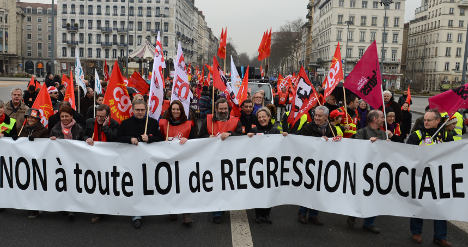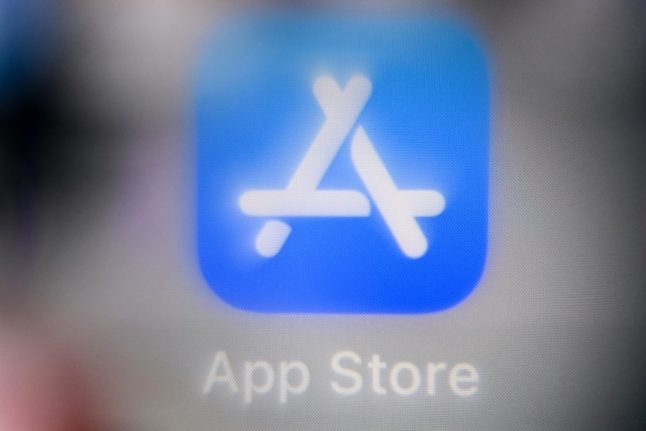Strikers marched through cities across the country in a last ditch bid to persuade the government to reject a historic deal signed in January aimed at reforming the country's complex labour laws after more than three months of talks. The reform is set to be discussed by the French government on Wednesday.
The agreement came after months of tense negotiations between unions and business leaders, but it was not universally accepted.
The influential CGT and FO unions refused to sign the deal, denouncing it as a “regression” and claiming it will lead to redundancies and put thousands of other jobs at risk.
“All sections of the agreement are aimed at weakening the position of employees,” said Bernard Thibault, secretary general of the CGT union
Jean-Claude Mailly, secretary general of the FO union claimed the historic agreement had “missed its aim”.
The measures in the reform are designed to give more flexibility to employers who have long complained of the red tape strangling the French economy.
But it will also offer more protection to employees, a key concern of France's unions.
The accord allows employers to cut working hours and salaries during hard times as well as making the process of laying off staff both less costly and less complicated.
On the other side, employees gained more rights, including better health cover and unemployment benefits.
In all 174 protests were held across the country, according to the CGT. In Paris thousands gathered at Place du Chatelet in the early afternoon before marching along the Rue de Rivoli towards the country’s parliament, the National Assembly.
Thousands of demonstrators also took to the streets on the cities of Toulouse, Marseille and Lyon.
France’s socialist government were relieved when the deal was signed after keeping a close eye on the talks. President François Hollande had threatened to intervene if an accord could not be reached.
The breakthrough occurred when the employers backed down from tax measures on contract workers that had become a deal-breaker with the unions.
In his New Year's Day public address French President François Hollande vowed to stem the rise in unemployment by the end of 2013.



 Please whitelist us to continue reading.
Please whitelist us to continue reading.
Member comments